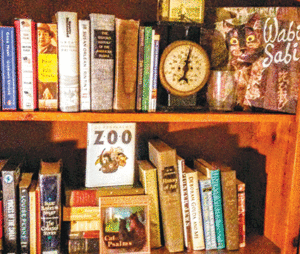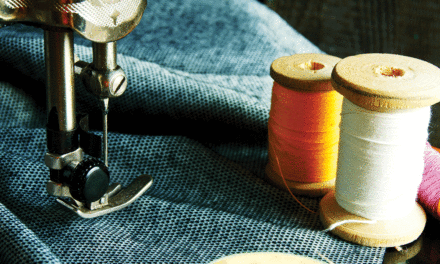Moving during life’s later years brings many challenges. 
Empty nest, divorce, and changed financial circumstances can all contribute to a search for smaller surroundings.
The euphemistic expression for such a pursuit is downsizing. It isn’t really too difficult a task, when all is said and done.
But between the saying and the doing there often sprawls a painful period of sifting through a lifetime of stuff transmuted into treasures one’s grown attached to, and which one must now learn to let go of.
For some people, weeding a wardrobe closet choked to overflowing can prove traumatic. For others, it’s folders full of faded pictures drawn by their children, who now have children of their own.
My personal downsizing ordeal involved books, of every shape and size, hard back and paperback, volumes saved somehow from every era of my life.
There were classics I prized because of the power and beauty their pages seemed to contain.
There was a paperback photography book a boy gave me in college, professing his affection.
I proudly displayed my favorites, including “On the Road” by beat scribe Jack Kerouac, “The Grapes of Wrath,” John Steinbeck’s wrenching saga of the human spirit’s struggle for survival during the Great Depression, “Red Hills and Cotton” by South Carolina writer and World War II war correspondent Ben Robertson, plus so many more I can’t begin to name. The volumes that filled my bookshelves, became a collection, symbolic puzzle pieces to my life’s own crazy quilt, keepsake clues of what I found beautiful and inspiring and life affirming.
Each book’s content no doubt could be downloaded onto a single tablet device, or through interlibrary loan. But it wouldn’t be the same as reaching for them on my bookshelf.
Visitors to my home would never again have a pang of recognition upon viewing them that they’d found a fellow traveler.
It was like letting go of more than lifelong companions, but actual parts of who I identified myself to be.
Far worse than winnowing my own books, was having to say goodbye to those I’d inherited, books that belonged to my parents, who themselves were now gone.
My mom had been an artist, my dad, a historian. Neither one worked professionally in those fields, nevertheless, that’s who they were. That’s what their books said, and that’s what I remember most about them.
They were also antiques lovers, so there were books they used as research tools to identify furniture, art, and artifacts originating in colonial Philadelphia, the city where I and they were born. I forever identified those volumes with road trips to antique shows which I professed to be bored by but began to enjoy.
They were maps holding the keys to my parents’ amazing array of keepsake tchotchkes from history’s back pages: antique plates, silverware, jugs, Staffordshire dogs and Limoges teacups, all marked with mysterious but meaningful initials and insignias identifying the date, city, and company where they originated. Many aspects of the City of Brotherly Love and its environs were of great interest to my dad — its highways, rivers, colonial history, and most uniquely, its Jewish history, along with the Jewish history of many other cities, and regions, and countries around the world, covering virtually every epoch from Biblical times to the present.
Growing up, I took all this amazing scholarship at my fingertips for granted. But to this day, outside of a synagogue or museum, I’ve never come across so complete a library on the topic in anyone’s home.
Too poor to receive a formal religious education, and needing to help support his family, my father instead devoted his adult life to educating himself. The volumes of reading never brought him monetary wealth.
But remembering the joy they gave him, they seem golden to me. Is it any wonder I’ve felt blessed to “schlep” the boxes with me throughout my adult life, even as creeping age has made them more difficult to manage?
For years now, my mother’s “History of Art” by H.W. Janson has sat undisturbed on my shelf, largely forgotten.
But just now, as I took it down and opened it, my interest piqued by writing this column, a yellowed envelope from Lord and Taylor department store unexpectedly appeared tucked between the cover and front page, a telltale remnant from my everyday childhood life. We must have taken hundreds of nondescript trips to that store outside suburban Jenkintown, none especially memorable. But suddenly, I’m right back there, riding the escalator. Did my mother use it as a bookmark? Did she place it there all those years ago? A smile starts across my face.
Another memory was shaken loose years ago when I happened to peruse a few of my father’s books. One in particular caught my eye that day: The History of the Jews of Germany. Curious, I checked the copyright date, and a chill went down my spine as I read “1936.”
I’ll always count books among my most prized possessions. Though parting will always be painful, I’ve managed over the years to decrease the numbers without decreasing the reverence. I kept those with inscriptions or handwriting inside, and I did cheat a bit. Instead of displaying all of them I still have several boxes still packed up beside the bookshelves.
I keep telling myself I’m going to unpack them but opening the boxes up opens the flood of memories all over again. I like to have enough time to savor them.
Maybe the next snow day.
With age, we hope, comes a bit of wisdom, and also the power to let go, to realize that less stuff leaves more than enough room to remember, and also to grow.




